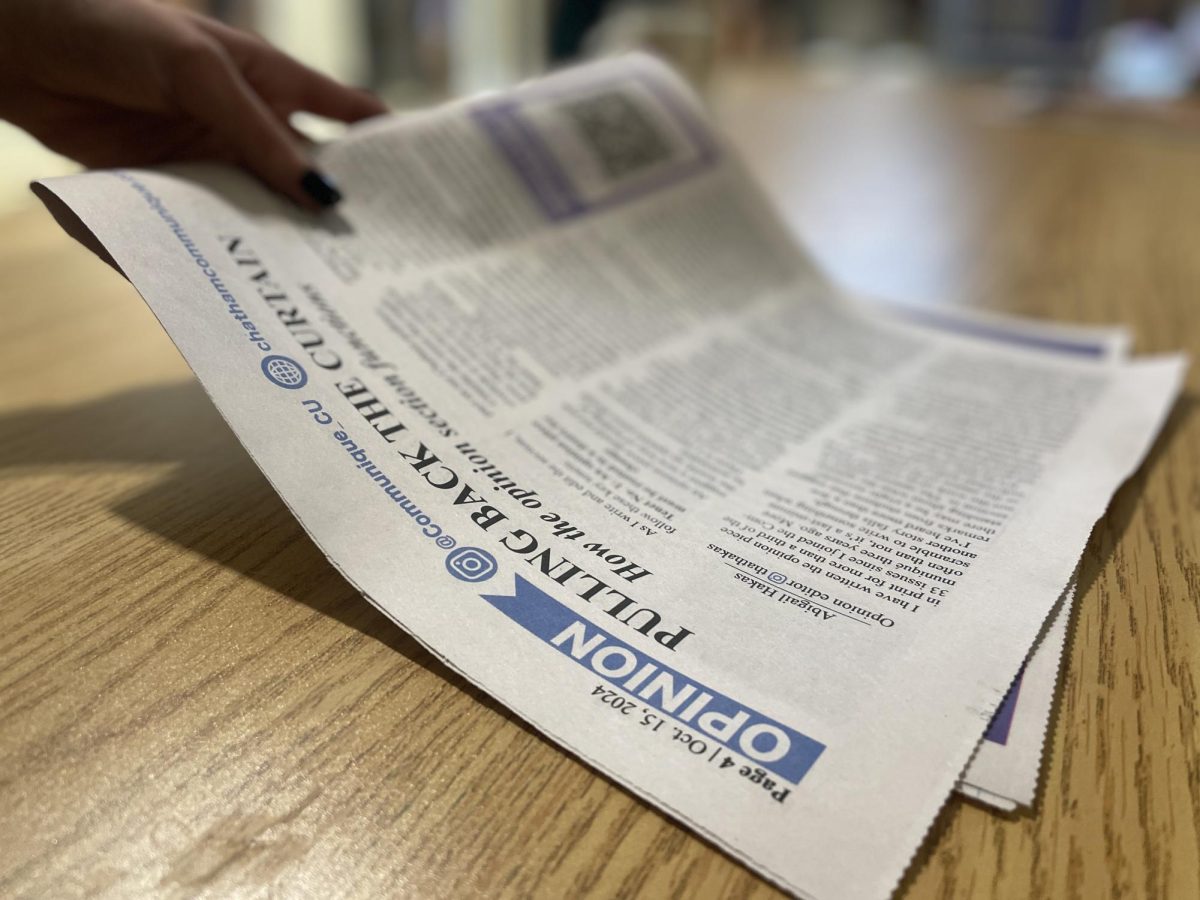I have written the opinion piece in print for more than a third of the 33 issues since I joined the Communiqué three years ago. More often than not, it’s a last-minute scramble to write something when another story falls through.
I’ve heard more than a few remarks from students that suggest there may be a slight misunderstanding about what the opinion section is. The opinion section is not the work of an editorial board or the stance of the paper — it’s an individual author’s perspective.
It’s an easy mistake to make. I’d bet good money that the vast majority of students have never directly interacted with our editorial process.
So let’s talk about it.
As opinion editor, it’s my job to ensure there’s a quality opinion piece in our biweekly print newspaper and to edit any stories written for the web. It’s a job I’ll spend the next two months training a student to do as I prepare to graduate in December.
This piece serves a two-fold purpose: first, it can serve as a manual for the next opinion editor and every opinion writer who follows and second – and perhaps more importantly – it should inform you, our readers, about the editorial process behind the opinion section.
As I write and edit the section, I follow these key tenets:
Tenet No. 1: An opinion piece must be rooted in a desire for change
An opinion piece should not just suggest a new way of looking at the world; an opinion piece should be actionable.
There is a reason I often keep my opinion pieces local to Chatham University or Pittsburgh. I have one question when I am writing or editing an opinion piece: what’s the point?
Sure, you can present a stellar argument about international politics, but we probably don’t have many politicians reading our articles. What can the average reader do? Grounding your piece in actions they can take, such as voting or calling local officials, is essential.
I mention politics not to say that it’s pointless to write about but rather to direct you to the next tenet.
Tenet No. 2: As an opinion writer, you must consider your readership
Your arguments should never be disconnected from your readers.
Our readers are almost exclusively Chatham students, staff and faculty. They have the most power within our own institution, boroughs and even Pittsburgh at large. If you want to write about politics, for example, think about opinion pieces that will have the most impact on our Chatham audience.
Consider the issues they might overlook or never have considered prior. Those issues are what will form the basis of the best pieces.
Tenet No. 3: You must argue in good faith
Opinion pieces must be rooted in a sense of respect and understanding for other perspectives. You should not argue against something you do not understand; thorough research should guide every piece.
One of my most important tasks as an opinion editor is to edit stories for potentially libelous statements by moderating language and ensuring statements are fact-checked. Putting legality aside, that work is also crucial for arguments to be effective.
Tenet No. 4: Updates, corrections and criticism are vital
An opinion piece needs to be malleable.
Responses from sources will come after stories are due. Corrections plague even the best outlets, and student outlets are no exception. If you’re fortunate enough to have a passionate readership, they will have thoughts about your piece.
These can — and should — affect coverage moving forward. An opinion section should evolve. Even these tenets will shift and adapt throughout the years from editor to editor and piece to piece.
This leads me to the final and perhaps most important tenet.
Tenet No. 5: Discussion does not end on the page, even here
An opinion section should stimulate conversation.
Writers must be available to their readers to answer questions and for further discussion. The greatest gift of being an opinion writer is being able to create a space for readers to not only think about but also to talk about issues that previously went unspoken.
It’s a gift I dread losing after graduation and a gift I’m excited to watch the next opinion editor discover as they create their own tenets.




Carson Folio • Oct 24, 2024 at 1:35 pm
Awesome piece! As someone who used to be an opinions editor at my own student newspaper, I feel this big time. Getting people to want to put their thoughts out there on a platform that isn’t social media can be difficult. It’s great that you want to get your writers to focus on issues that can be addressed at Chatham as well as Pittsburgh as a whole – where is the value if nothing can be done with the information presented?